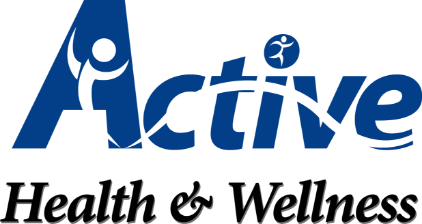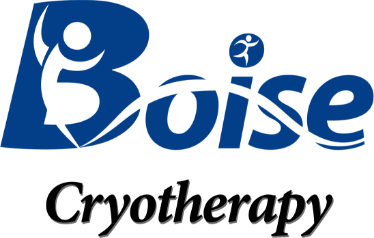 In today’s fast-paced world, hydration often takes a backseat to our daily demands. Yet, the consequences of inadequate water intake can be far-reaching, impacting various aspects of our health, including our musculoskeletal system. At Active Health & Wellness, serving Boise, Idaho, and Eagle, Idaho, we frequently encounter patients curious about the connection between dehydration and lower back pain. This blog delves into this intriguing relationship, highlighting why staying hydrated is crucial for maintaining a healthy back.
In today’s fast-paced world, hydration often takes a backseat to our daily demands. Yet, the consequences of inadequate water intake can be far-reaching, impacting various aspects of our health, including our musculoskeletal system. At Active Health & Wellness, serving Boise, Idaho, and Eagle, Idaho, we frequently encounter patients curious about the connection between dehydration and lower back pain. This blog delves into this intriguing relationship, highlighting why staying hydrated is crucial for maintaining a healthy back.
The Importance of Hydration for Overall Health
Water is essential for life, constituting approximately 60% of the human body. It plays a pivotal role in various bodily functions, including digestion, nutrient absorption, temperature regulation, and waste elimination. Despite these well-known benefits, the impact of hydration on musculoskeletal health, particularly lower back pain, is often overlooked.
Understanding Lower Back Pain
Lower back pain is a prevalent condition, affecting millions of people worldwide. It can stem from various factors, including muscle strain, poor posture, herniated discs, and underlying medical conditions. The spine’s intricate structure, composed of vertebrae, intervertebral discs, ligaments, and muscles, requires optimal hydration to function effectively.
How Dehydration Affects the Spine
The intervertebral discs, situated between the vertebrae, act as shock absorbers, cushioning the spine during movement. These discs are composed of a gelatinous core (nucleus pulposus) and a tougher outer layer (annulus fibrosus), both of which are predominantly made up of water. Proper hydration is crucial to maintaining the discs’ integrity and functionality.
- Disc Dehydration: When the body is dehydrated, the intervertebral discs lose water content, causing them to shrink and become less effective at absorbing shocks. This can lead to increased pressure on the spinal joints and nerves, potentially resulting in lower back pain.
- Reduced Lubrication: Dehydration also affects the lubrication of the spine’s joints and soft tissues. Adequate hydration ensures that the synovial fluid, which lubricates the joints, remains at optimal levels, facilitating smooth and pain-free movement.
- Muscle Cramps and Spasms: Dehydration can cause muscle cramps and spasms, further exacerbating lower back pain. Muscles require sufficient water to maintain their elasticity and function. When dehydrated, they are more prone to fatigue and tension, contributing to discomfort and pain.
Symptoms of Dehydration-Related Lower Back Pain
Identifying whether dehydration is a contributing factor to lower back pain can be challenging. However, certain symptoms may suggest a link:
- Dry Mouth and Thirst: A persistent feeling of thirst and a dry mouth are primary indicators of dehydration.
- Dark Yellow Urine: The color of urine can reflect hydration levels. Dark yellow or amber-colored urine often indicates dehydration.
- Fatigue and Dizziness: Dehydration can lead to overall fatigue, dizziness, and a general feeling of unwellness, which can exacerbate pain perception.
- Stiffness and Pain in the Lower Back: A noticeable stiffness and pain in the lower back, particularly if it worsens with physical activity, may suggest a hydration issue.
The Role of Chiropractic Care in Managing Dehydration-Related Lower Back Pain
At Active Health & Wellness, our experienced chiropractors in Boise and Eagle, Idaho, recognize the importance of a holistic approach to health. Chiropractic care can be particularly beneficial for individuals experiencing lower back pain related to dehydration. Here’s how:
- Spinal Adjustments: Chiropractic adjustments help realign the spine, reducing pressure on the intervertebral discs and nerves. This can alleviate pain and improve overall spinal health.
- Hydration Counseling: Our chiropractors provide personalized hydration advice, helping patients understand their unique hydration needs and how to meet them. This may include recommendations on water intake, diet, and lifestyle changes.
- Exercise and Stretching: We develop customized exercise and stretching programs to strengthen the muscles supporting the spine, enhance flexibility, and reduce the risk of lower back pain.
- Lifestyle Modifications: Addressing lifestyle factors that contribute to dehydration, such as caffeine and alcohol consumption, is crucial. Our team offers guidance on making healthier choices to support overall well-being.
Tips for Staying Hydrated
Maintaining proper hydration is essential for preventing lower back pain and promoting overall health. Here are some practical tips:
- Drink Adequate Water: The general recommendation is to drink at least eight 8-ounce glasses of water a day, but individual needs may vary based on activity level, climate, and overall health.
- Monitor Your Urine Color: Use the color of your urine as a guide. Aim for a light yellow color, which indicates good hydration levels.
- Eat Hydrating Foods: Incorporate water-rich foods into your diet, such as fruits and vegetables. Cucumbers, watermelon, and oranges are excellent choices.
- Limit Diuretics: Reduce the intake of diuretic beverages like coffee and alcohol, which can increase urine output and contribute to dehydration.
- Set Hydration Reminders: Use alarms or smartphone apps to remind yourself to drink water regularly throughout the day.
- Stay Hydrated During Exercise: Drink water before, during, and after physical activity to replace fluids lost through sweat.
Don’t Overlook Your Lower Back Pain
Dehydration is a common yet often overlooked factor contributing to lower back pain. At Active Health & Wellness, we emphasize the importance of proper hydration in maintaining spinal health and overall well-being. Our chiropractors in Boise and Eagle, Idaho, are dedicated to helping patients achieve optimal health through personalized care, including hydration counseling and chiropractic adjustments.
If you’re experiencing lower back pain and suspect dehydration might be a factor, we encourage you to schedule a consultation with our team. Together, we can develop a comprehensive plan to alleviate your pain and improve your quality of life. Remember, staying hydrated is not just about quenching your thirst—it’s about supporting your body’s intricate systems and ensuring long-term health. Visit Active Health & Wellness today to start your journey toward a healthier, pain-free life.
CONTACT US »

